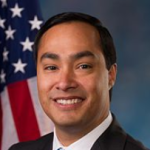House Speaker John Boehner says his premiums will double, and his deductible will triple, under the Affordable Care Act. That’s true, but it is misleading to compare Boehner with the “many Americans seeing their costs go up,” as his spokesman Brendan Buck has put it.
Boehner’s experience with the Affordable Care Act is extremely atypical compared to most Americans. His rates — which include the cost of insuring his wife — are doubling because of the couple’s age and high income, and a special provision in the law that forced members of Congress out of their employer-sponsored plans.
As a result of an amendment by Republican Sen. Chuck Grassley, Boehner is barred from the Federal Employees Health Benefits Program. He must buy insurance on the exchange created by the law. But that’s a costly switch for Boehner, who is 64 years old. The exchange plans charge higher premiums based on age — unlike his current employer-sponsored plan.
As we have long cautioned, some Americans may pay more and some may pay less on the exchanges – depending on factors such as age, tobacco use and home state. The same is true for those in Congress.
Consider Rep. Joaquin Castro of Texas. We reached out to Castro to see how his experience on the exchange stacked up to Boehner’s. Castro selected the same plan as Boehner. But Castro — who is 25 years younger than Boehner — will pay about half of what he is now paying. Castro’s new plan has a higher deductible, but he could have selected a plan with no deductible and still saved money.
The difference between Castro’s and Boehner’s premiums is mostly due to age. But there are other variables in play as well — as we will explain below — including the fact that Boehner’s wife is now eligible for Medicare, and her higher-than-average Medicare premium is based on the couple’s high income.
Boehner
In his weekly press conference on Dec. 5, Boehner bemoaned the cost of his new insurance. “My health insurance premiums are gonna double,” Boehner said. “My co-pays and deductibles tripled under Obamacare.” He added, sarcastically, “I’m thrilled to death as you can tell.”
 When Boehner signed up for insurance on Nov. 24, the press was provided photos of Boehner struggling with computer glitches on the federal website HealthCare.gov. Boehner reported that it took him several hours to navigate the system and shop for a new plan for him and his wife. Politico wrote about his experience in a story headlined, “John Boehner’s premiums spike under Obamacare.” Fox News also ran a story about it under the headline, “Boehner seeing his premiums double, deductibles triple under ObamaCare.”
When Boehner signed up for insurance on Nov. 24, the press was provided photos of Boehner struggling with computer glitches on the federal website HealthCare.gov. Boehner reported that it took him several hours to navigate the system and shop for a new plan for him and his wife. Politico wrote about his experience in a story headlined, “John Boehner’s premiums spike under Obamacare.” Fox News also ran a story about it under the headline, “Boehner seeing his premiums double, deductibles triple under ObamaCare.”
Boehner reported that, under his current plan, he pays premiums of $433 a month for him and his wife, with a $700 deductible. But Boehner doesn’t need a joint health plan next year because his wife just turned 65, and is therefore eligible for Medicare. Fox News reported that Boehner’s wife, Debbie, had already applied for Medicare Part A, the premium-free hospital care program. Boehner’s office reported that in order to enroll in Medicare Parts B and D — to make the switch comparable — she’d have to pay up to $400 per month.
That left Boehner shopping for a plan just for himself. He selected a Blue Cross PPO plan with a $1,000 deductible — one described by Care First Blue Cross as the one “that most closely matches the benefits” in the current federal employee plan. It’s got the same network of doctors. The plan has a monthly premium of $875.32 for someone 64 years old, like Boehner. The federal government picks up 75 percent of the premium (up to a maximum of $426 per month) — so the cost to Boehner is $449 per month.
To sum up, Boehner is paying $433 a month now. His new plan will cost $449 a month plus up to $400 a month for his wife’s Medicare plan, for a total of $849 — nearly twice his current premium of $433.
The couple’s combined cost is comparable, Boehner said, to what he would have paid for a joint plan on the exchange that is similar to the one he has now. He said that would have cost $802 per month in premiums, with a $2,000 deductible.
The bottom line could have been worse for Boehner. Under the Affordable Care Act, insurance companies can charge smokers, such as Boehner, up to 50 percent more — unless a state expressly prohibits charging higher premiums based on tobacco use. Washington, D.C., happens to be one of the few that does not allow insurance companies to charge extra for smokers. There are seven states with a similar policy, according to WebMD.com, including: California, Connecticut, Massachusetts, New Jersey, New York, Rhode Island, and Vermont.
“The Boehners are fortunate enough to be able to afford higher costs,” Boehner spokesman Brendan Buck told Politico. “But many Americans seeing their costs go up are not. It’s because of them that this law needs to go.”
But there’s a big caveat with the Medicare cost for Boehner’s wife.
As columnist Michael Hiltzik explained in the Los Angeles Times, Medicare premiums are based on income. Boehner’s office declined to tell us the married couple’s combined salary, only that their income would result in Medicare premiums of around $400 per month. In order to have to pay that much for Medicare Part B and D next year, a couple would have to earn more than $428,000 a year. If a couple had a combined income above $428,000, they’d have to pay $336 per month for Medicare Part B and another $69 per month for Part D (the drug premium) in 2014.
Couples filing jointly, and with an income below $170,000, would pay $105 a month. In other words, the high cost of Medicare for the Boehners is largely due to the fact that their high income requires them to pay close to, or at the maximum amount. To put their income in perspective, only 2.4 percent of households in 2012 had an income above $250,000, according to the U.S. Census Bureau. If Boehner and his wife made less than $170,000 — as more than 93 percent of the population did in 2012 — Boehner would only be paying $105 a month, which means he would be paying about 28 percent more for health insurance next year.
Nonetheless, Boehner is paying more for his insurance, and he has a higher deductible. There’s no denying this is a bad switch for him. But, again, that’s mostly because he’s an anomaly. He’s paying more for his wife’s Medicare because the Boehners earn far more than most Americans. And he pays more for his premium because he’s 64 years old.
The current federal group plan that covers Boehner does not distinguish rates based on age. That’s pretty typical in employer-based plans. However, the Affordable Care Act (section 2701) allows insurers on the individual market to charge more based on a customer’s age, though it can’t be more than three times more. As we shall soon see with Castro’s example, there are large differences between the rates offered on the individual market based on age.
Castro
As a 39-year-old freshman congressman, we reached out to Rep. Joaquin Castro, a Democrat from Texas, to see how his age affected his experience shopping on the Washington, D.C., exchange. And as we previously noted, it was much different than Boehner’s.
 Castro is married, but his wife is not currently on his federal insurance plan. So, he shopped for a plan just for himself next year as well. (Castro has no children, but his wife is expecting).
Castro is married, but his wife is not currently on his federal insurance plan. So, he shopped for a plan just for himself next year as well. (Castro has no children, but his wife is expecting).
Like Boehner, Castro selected the Blue Cross PPO plan with a $1,000 deductible. It carries a monthly premium of $376.46 — nearly $500 a month less than Boehner for the same plan. Again, the federal government picks up 75 percent of the cost, so Castro will pay $94.12 a month. His previous monthly payment was $186.14. That’s a savings of $92.02 per month, or roughly half of what he was paying before.
As with Boehner, Castro will be able to keep his same doctor, but his deductible will climb from $350 a year to $1,000. But just for fun, we looked at a Blue Cross PPO plan with a zero deductible. That plan would cost Castro $110 per month. In other words, Castro could have selected a plan that saved him about $76 a month, and carried no deductible at all. As a freshman congressman, Castro makes $174,000 a year, so he’s not eligible for any subsidies. The bottom line: the switch has been a good deal for Castro.
And that gets to the crux of this comparison exercise: when it comes to whether you will pay more or less on an exchange — it depends.
As we wrote previously:
FactCheck.org, Sept. 16: Are you uninsured and have a preexisting condition? You’ll likely pay less than you would have otherwise. Are you uninsured but young and healthy? You’ll likely pay more (without accounting for any subsidies you may receive). Are you insured through your employer? You likely won’t see much change either way.
We could have added: “Are you an older member of Congress with a high household income and a wife who just joined Medicare? You’ll definitely pay more.”
But Boehner’s experience is not representative of what most Americans will face.
The vast majority of Americans get their insurance through their employer. Among those who shop on the individual market, most coming to the exchanges currently have no insurance, or their plans were cancelled because the plans did not comply with the new minimum requirements of the Affordable Care Act.
Only individuals whose employers decide to drop insurance and instead pay their employees a stipend to seek insurance on their own through the exchange — and there are some who fit that bill — would face a situation comparable to Boehner’s. Even then, their experience could result in higher or lower premiums, depending on their age and tobacco use, as we’ve been saying all along.
— Robert Farley